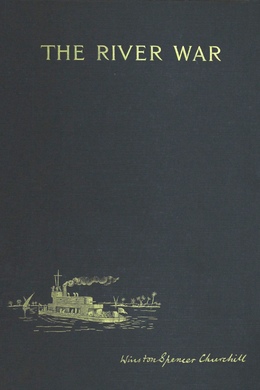
The River War
An Historical Account of the Reconquest of the Soudan
by Winston S. Churchill
subjects: Military History
-
EPUB 472 KB
-
Kindle 598 KB
-
Support epubBooks by making a small $2.99 PayPal donation purchase.
Description
Here Sir Winston S. Churchill tells the tale of the Anglo-Egyptian reconquest of the Sudan. It isn’t just an account of the battles and the politics; it’s the story of the destiny of the people of the region: Churchill with his powerful insight tells how the war changed the fates of England, Egypt, and the Arabian peoples in northeast Africa. In vivid style the book describes the background to the war, the relationship of the Upper Nile to Egypt, the murder of General Charles George Gordon in the siege at Khartoum, the political reaction in England, and Kitchener’s elaborate preparations for the war. While in the Sudan, Churchill participated in the Battle of Omdurman. Churchill comments at length on the mechanisation of war with use of the telegraph, railroad, and a new generation of weaponry.
503 pages with a reading time of ~7.75 hours (125962 words), and first published in 1899. This DRM-Free edition published by epubBooks, 2017.
Community Reviews
There are currently no other reviews for this book.
Excerpt
The north-eastern quarter of the continent of Africa is drained and watered by the Nile. Among and about the headstreams and tributaries of this mighty river lie the wide and fertile provinces of the Egyptian Soudan. Situated in the very centre of the land, these remote regions are on every side divided from the seas by five hundred miles of mountain, swamp, or desert. The great river is their only means of growth, their only channel of progress. It is by the Nile alone that their commerce can reach the outer markets, or European civilisation can penetrate the inner darkness. The Soudan is joined to Egypt by the Nile, as a diver is connected with the surface by his air-pipe. Without it there is only suffocation. Aut Nilus, aut nihil!
The town of Khartoum, at the confluence of the Blue and White Niles, is the point on which the trade of the south must inevitably converge. It is the great spout through which the merchandise collected from a wide area streams northwards to the Mediterranean shore. It marks the extreme northern limit of the fertile Soudan. Between Khartoum and Assuan the river flows for twelve hundred miles through deserts of surpassing desolation. At last the wilderness recedes and the living world broadens out again into Egypt and the Delta. It is with events that have occurred in the intervening waste that these pages are concerned.
The real Soudan, known to the statesman and the explorer, lies far to the south–moist, undulating, and exuberant. But there is another Soudan, which some mistake for the true, whose solitudes oppress the Nile from the Egyptian frontier to Omdurman. This is the Soudan of the soldier. Destitute of wealth or future, it is rich in history. The names of its squalid villages are familiar to distant and enlightened peoples. The barrenness of its scenery has been drawn by skilful pen and pencil. Its ample deserts have tasted the blood of brave men. Its hot, black rocks have witnessed famous tragedies. It is the scene of the war.
This great tract, which may conveniently be called ‘The Military Soudan,’ stretches with apparent indefiniteness over the face of the continent. Level plains of smooth sand–a little rosier than buff, a little paler than salmon–are interrupted only by occasional peaks of rock–black, stark, and shapeless. Rainless storms dance tirelessly over the hot, crisp surface of the ground. The fine sand, driven by the wind, gathers into deep drifts, and silts among the dark rocks of the hills, exactly as snow hangs about an Alpine summit; only it is a fiery snow, such as might fall in hell. The earth burns with the quenchless thirst of ages, and in the steel-blue sky scarcely a cloud obstructs the unrelenting triumph of the sun.
Through the desert flows the river–a thread of blue silk drawn across an enormous brown drugget; and even this thread is brown for half the year. Where the water laps the sand and soaks into the banks there grows an avenue of vegetation which seems very beautiful and luxuriant by contrast with what lies beyond. The Nile, through all the three thousand miles of its course vital to everything that lives beside it, is never so precious as here. The traveller clings to the strong river as to an old friend, staunch in the hour of need. All the world blazes, but here is shade. The deserts are hot, but the Nile is cool. The land is parched, but here is abundant water. The picture painted in burnt sienna is relieved by a grateful flash of green.
Yet he who had not seen the desert or felt the sun heavily on his shoulders would hardly admire the fertility of the riparian scrub. Unnourishing reeds and grasses grow rank and coarse from the water’s edge. The dark, rotten soil between the tussocks is cracked and granulated by the drying up of the annual flood. The character of the vegetation is inhospitable. Thorn-bushes, bristling like hedgehogs and thriving arrogantly, everywhere predominate and with their prickly tangles obstruct or forbid the path. Only the palms by the brink are kindly, and men journeying along the Nile must look often towards their bushy tops, where among the spreading foliage the red and yellow glint of date clusters proclaims the ripening of a generous crop, and protests that Nature is not always mischievous and cruel.
